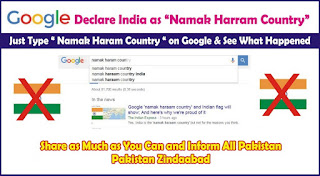The 21-year-old
Babar Azam enhanced his promising reputation with a maiden ODI hundred against West Indies on Friday. That, sandwiched between Sharjeel Khan's half-century, and a late cameo from Imad Wasim, led Pakistan to 284 for 9 in a match reduced to 49-overs-a-side because of a floodlight failure. Chasing 287, courtesy the Duckworth-Lewis revisions, West Indies sleepwalked their way, much like they had done in the T20Is, to 175, and suffered another demoralising defeat.
There is an air of serenity around Azam. He is technically correct in defence and drives with the head over the ball. He was among very few to receive glowing appraisals from coach Mickey Arthur after the disastrous tour of England.
In Sharjah he walked in to face the second ball of the match, after a Shannon Gabriel beauty that had Azhar Ali nicking behind for a duck. It took a
stunning catch from Kieron Pollard at the edge of the wide long-on boundary to ultimately dismiss Azam in the 43rd over for 120 off 131 balls. In between, there was a display of solid strokes coupled with risk-free cricket and a stroke of luck - he survived a close lbw appeal off Sulieman Benn early in his innings. He lugged 70 of his runs through ones and twos: excellent running in humid conditions.
Azam first added 82 for the second wicket with Sharjeel, and then 99 for the fourth with Sarfraz Ahmed. Wary of the seam movement generated by Jason Holder and Gabriel, Azam played copybook cricket more often than not. It wasn't until Sharjeel cut loose that Pakistan began to lift the scoring rate - he clattered 44 of Pakistan's 60 in the Powerplay.
West Indies' Powerplay, on the other hand, was a crawl. If they hoped to stop the rot at the top of the order by introducing a debutant in Kraigg Brathwaite, who had played 31 Tests before this game, they were in for a reality check. They managed all of two boundaries in their first ten overs, both supplied by Johnson Charles before he was dismissed by Mohammad Amir.
After posing a threat with a bevy of away-going deliveries from over the wicket, Amir had switched his angle to around the wicket and coaxed the ball to straighten enough to take the outside edge. West Indies had to wait 30 balls for their next boundary, which was also Kraigg Brathwaite's first, off the 34th ball he faced.
Kraigg Brathwaite's poor debut ended when he angled Hasan Ali behind in the 13th over for 14 off 38 balls. In fact, it was the
second-slowest, in terms of strike rate, by a West Indian on ODI debut. Mohammad Nawaz, the left-arm spinner, then unravelled the chase with three quick strikes, including wickets of Darren Bravo and Denesh Ramdin. When Kieron Pollard sliced a catch to deep point, West Indies were 99 for 5 and the asking rate had crept towards eight. Marlon Samuels briefly swung his way to 46 before West Indies were bowled out in 38.4 overs. They
just couldn't find a way to adapt, again.
Sharjeel, though, had adapted well enough, even as West Indies blocked his favoured leg-side region during Pakistan's innings. He responded to the seamers' modus operandi of testing in the channel outside off by hitting a flurry of boundaries straight down the ground. He scythed Gabriel over mid-off for a brace of fours before shovelling Carlos Brathwaite and Holder over long-on.
The introduction of spin, however, slowed Pakistan down. Only 65 runs came off the next 15 overs for the loss of Sharjeel and Shoaib Malik. Benn, who bowled slower through the air as opposed to firing it in, provided West Indies with a breakthrough when he had Sharjeel skewing an outside edge to short third man for a 43-ball 54. Twenty balls later, Sunil Narine found Shoaib Malik's outside edge, which was held at slip.
In between the two wickets, Azam endured the first of the two insecure moments during his knock. Benn slid in an arm-ball, which rapped him on the pad. Ahsan Raza, the on-field umpire, shot down the appeal, but Holder insisted on a review. Hawk-Eye showed that the ball would carry onto hit the top of the stumps, which meant umpire's call was upheld. Then in the 27th over, Azam escaped when Carlos Brathwaite failed to effect a direct hit off his own bowling following a mix-up with Sarfraz.
Sarfraz, himself, was reprieved on 5 when Ramdin fluffed a stumping chance. He proceeded to keep the score ticking with Azam. Just as he threatened to cut loose, Holder duped him with a slower ball.
Azam, however, carried on to raise his ton off 119 balls, having been on 50 off 74 balls. He reached three figures when he drove Narine through the covers in the 38th over. He celebrated the landmark by leaping in the air before performing the sajdah.
Azam then spanked Benn and Narine for leg-side sixes, but when he attempted one against Carlos Brathwaite, Pollard snaffled the big hit. A floodlight failure, which lasted for over an hour, handed West Indies some respite. Pakistan were limited to 24 for 3 in 4.3 overs upon resumption, but it was only crumbs of consolation for the losing side.



 21:13
21:13
 New at Site
New at Site
 21:01
21:01
 New at Site
New at Site

 20:53
20:53
 New at Site
New at Site
 21:34
21:34
 New at Site
New at Site
 22:04
22:04
 New at Site
New at Site




